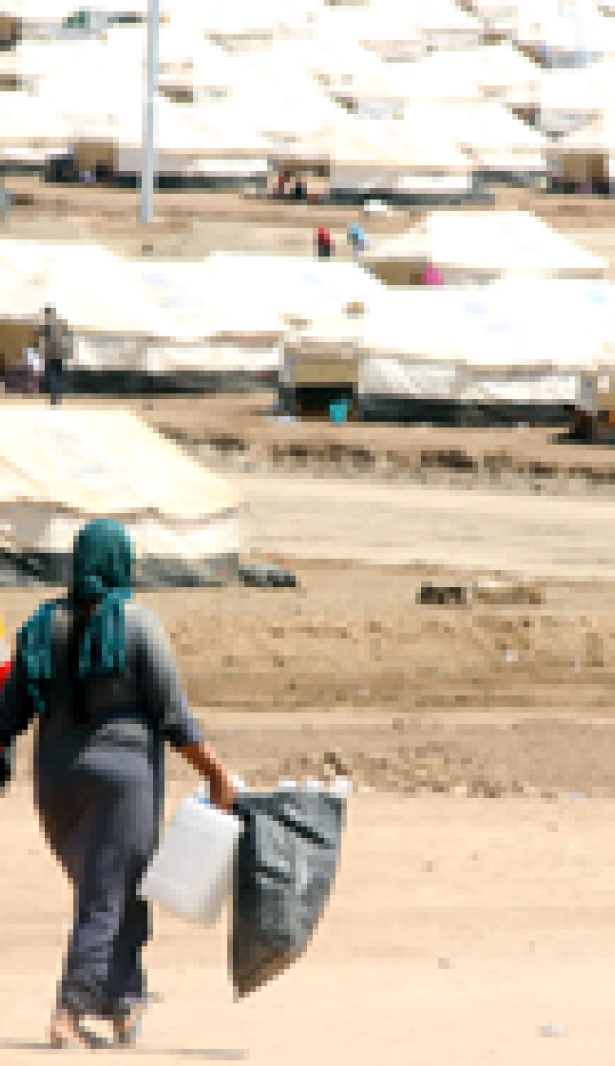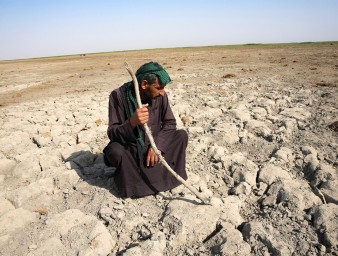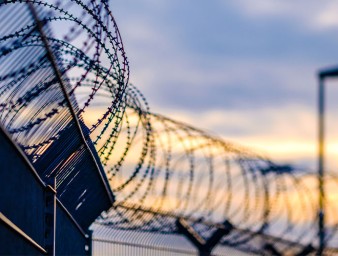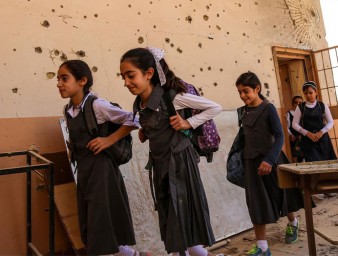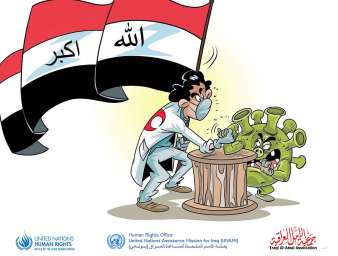Human Rights Council convenes a Special Session on abuses committed in Iraq by ISIL
02 September 2014
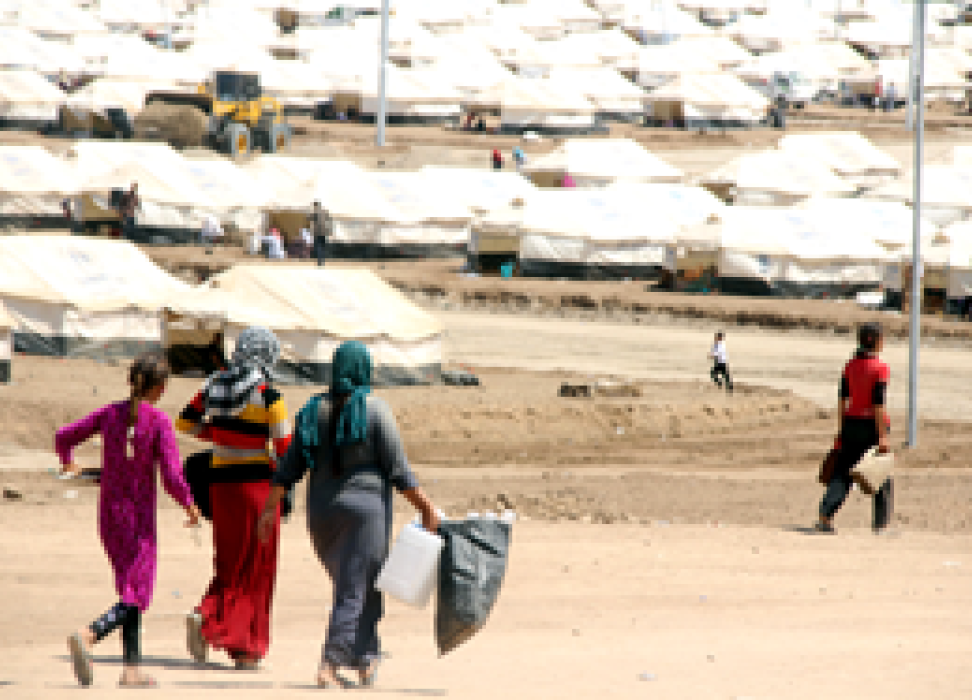
Since the emergence of the so-called Islamic state of Iraq and the Levant (ISIL) and associated groups, widespread and systematic human rights violations against civilians have dramatically increased.
In parts of Anbar, Diyala, Ninewa, and Salah-al-Din governorates in the northern half of Iraq, violations include targeted killings, forced conversions, abductions, trafficking, slavery, sexual abuse and torture, destruction of places of religious and cultural significance, and the besieging of entire communities because of ethnic, religious or sectarian affiliation.
Speaking at the special session held by the Human Rights Council in Geneva on the human rights situation in Iraq, in light of the abuses committed by ISIL and its associates, the Deputy UN High Commissioner for Human Rights, Flavia Pansieri, said that over one million people have been forced to flee their homes to survive the violence.
“Christian, Yezidi, Turkmen, Shabak, Kaka’e, Sabaeans and Shi’a communities have been targeted through particularly brutal persecution, as ISIL has ruthlessly carried out what may amount to ethnic and religious cleansing in areas under its control. The full extent of casualties is difficult to determine,” Pansieri said.
The Deputy High Commissioner noted that at least 850,000 people belonging to ethnic and religious groups under attack have found refuge in displacement camps set up by the Government of the Kurdish Region, while others were being hosted by local communities where resources are scarce. “Some 180,000 people entered the Kurdistan Region in the course of a single day,” she highlighted.
ISIL has intentionally destroyed Sunni and Shia shrines, and Christian places of cultural and religious significance. “These communities have lived side by side, on the same soil, for centuries, and in some cases, millennia. These individuals have an undeniable right to continue living in their own country, in peace, equality and dignity,” Pansieri stressed.
She added that ISIL had intentionally committed widespread and systematic persecution of these ethnic and religious groups, depriving them of their right to life and to freedom of religion; denying them of their identity; and compelling many “to wander in fear in desolate and dangerous areas”.
“These inhumane and odious offences constitute a serious and deliberate attack on human dignity and on human rights, likely amounting to a crime against humanity,” she said.
Pansieri also described the severe restrictions and abuses by members of ISIL to which women have been exposed. In Mosul, they were forced to veil their faces and comply with gender-specific rulings. “Women are not allowed to walk in the street without the presence of a male guardian, and there are more and more reports of women being beaten for violating ISIL rules.”
She noted that in the past few months, the UN Human Rights Office had also received reports of violations of human rights and humanitarian law by Iraqi Security Forces (ISF) and anti-ISIL armed groups, including arbitrary executions of detainees; the killing of civilians by shelling and ISF air strikes in Tel Keyf city, Batnaya, Tel Esquf, Kirkuk and Fallujah; and the killing of Sunni worshippers gathered in a Mosque in Bani Wais village, in Khanaqin district.
“Even though this conflict has severely reduced the Iraqi Government’s control over large parts of its territory, the Government continues to bear primary responsibility for the protection of all persons on its territory, and must endeavour to implement its obligations,” the Deputy High Commissioner stressed.
Pansieri also recalled that all parties to the conflict are obligated to abide by international humanitarian law and international human rights law. “The international community and the Government of Iraq must exert all efforts to ensure that any individuals who have participated in, or supported, the commission of these crimes are held accountable in accordance with the law,” she stressed.
Children belonging to ethnic and religious communities targeted by ISIL have also been put at risk. The Special Representative of the UN Secretary General for Children and Armed Conflict, Leila Zerrougui, said that the impact of armed violence on children had reached unprecedented level during the current crisis.
“The most reported violations remain the killing and maiming of children. Six-hundred and ninety-three child casualties have been reported since the beginning of the year,” Zerrouigui said, noting that most casualties were due to indiscriminate attacks by Government forces and armed groups including ISIL and affiliates. She also highlighted that young boys had been executed along other civilians by armed opposition groups, including ISIL.
Zerrougui referred to unverified reports of sexual violence and forced marriages that have emerged in the last few months, saying that young girls from minority groups were being abducted for these purposes.
She was also concerned by the recruitment of children by armed groups from all sides of the conflict, although the Iraqi authorities had given instructions to Government-backed militias to prevent it.
Speaking on behalf of the Coordination Committee of Special Procedures, its current Chairperson, the Special Rapporteur on Internally Displaced Persons, Chaloka Beyani, urged the Iraqi authorities and the international community to coordinate their efforts to reinforce state capacity to protect civilians and escort them to safe locations.
In a resolution adopted without a vote, the Human Rights Council requested the UN Human Rights Office to dispatch a fact-finding mission to Iraq to investigate violations committed by ISIL and its associates.
The Council also called on the international community to assist the Iraqi authorities to protect populations fleeing from terrorist attacks, in particular women, children, persons with disabilities, and members of ethnic, religious and other minorities.
2 September 2014
